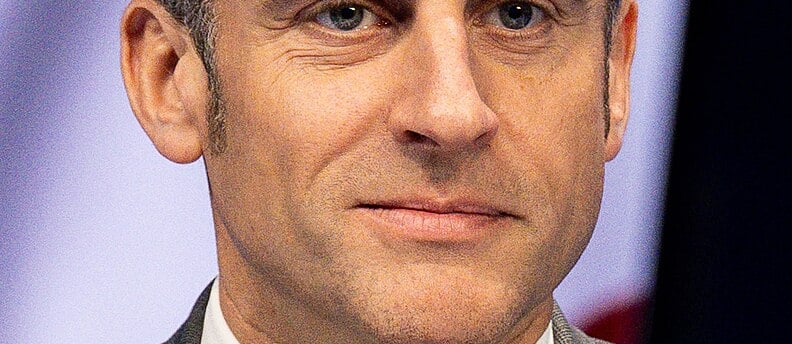Macron Faces No-Confidence Fallout Amidst Political Turmoil
France has been thrust into uncertainty following a historic no-confidence vote that ousted Prime Minister Michel Barnier, leaving the government in disarray.
NEWS
12/5/20242 min read


Image: By Belgian Presidency of the Council of the EU 2024 from Belgium, CC BY 2.0\
The political landscape in France has been thrust into uncertainty following a historic no-confidence vote that ousted Prime Minister Michel Barnier, leaving the government in disarray. This unprecedented event marks the first fall of a French government through a no-confidence motion since 1962. President Emmanuel Macron now faces an uphill battle to restore stability, grappling with intense opposition and a fractured parliament, where no party holds a majority. With the country's economic health at stake, Macron's next moves are under intense scrutiny from both domestic and international observers.
Political Deadlock and Macron’s Dilemma
The no-confidence vote, passed by 331 members of the National Assembly, reflects deep-seated discontent within the legislature. Opposition factions from both the left and the far-right united against Barnier, a centrist compromise candidate, who resigned after only three months in office—the shortest tenure in modern French history. This political deadlock highlights Macron’s struggle to navigate a polarized assembly where alliances are fluid, and consensus seems elusive. Calls for his resignation have grown louder, but Macron remains resolute, stating, “I was elected to serve until 2027, and I will fulfill that mandate.”
Economic Implications of Political Instability
The collapse of Barnier's government has exacerbated economic concerns. Moody’s and other credit agencies have warned that the instability could deter investment and increase borrowing costs. Barnier’s budget proposal, which aimed to reduce the deficit to 5% of GDP through €60 billion in tax increases and spending cuts, was a focal point of contention. Opposition parties, particularly on the left, strongly opposed these austerity measures, further complicating efforts to form a consensus around economic reform. As Macron prepares to address the nation, investors are closely watching for signs of a credible economic strategy.
Challenges in Selecting a New Prime Minister
One of Macron's immediate priorities is appointing a successor who can command sufficient support within the National Assembly. Potential candidates from Macron’s centrist camp face skepticism, while left-leaning and far-right factions have made it clear they will not easily support any compromise figure. Yaël Braun-Pivet, president of the National Assembly, emphasized the urgency of this decision, stating, “There must not be any political hesitation. We need a leader who can speak to everyone.” However, with each faction entrenched in its positions, forming a functioning coalition appears increasingly challenging.
Rising Opposition and Calls for Change
The no-confidence vote has galvanized opposition leaders, who see an opportunity to challenge Macron’s leadership. Manuel Bompard of the far-left France Unbowed party declared, “Stability requires the departure of the President of the Republic,” reflecting a broader sentiment among left-wing factions. Meanwhile, far-right leader Marine Le Pen has strategically refrained from calling for Macron’s resignation, instead focusing on consolidating her party’s influence in the lead-up to the 2027 presidential election. This calculated approach underscores the far-right’s long-term strategy to position itself as the alternative to Macron’s centrist policies.
The Road Ahead: Uncertainty and Division
France’s political future remains uncertain, with no clear path to a stable government. Macron's decision to call snap elections earlier this year, intended to solidify his mandate, has instead deepened the crisis. As the country awaits his next move, the prospect of further deadlock looms large. With new legislative elections off the table until at least July, Macron’s leadership will be tested like never before. The outcome of this crisis will not only shape France’s domestic policies but also impact its role within the European Union, as political divisions threaten to undermine its stability and economic resilience.
Insights
Stay updated with the latest trends and news.
Connect
SUBSCRIBE TO OUR NEWSLETTER
© 2024. All rights reserved.
